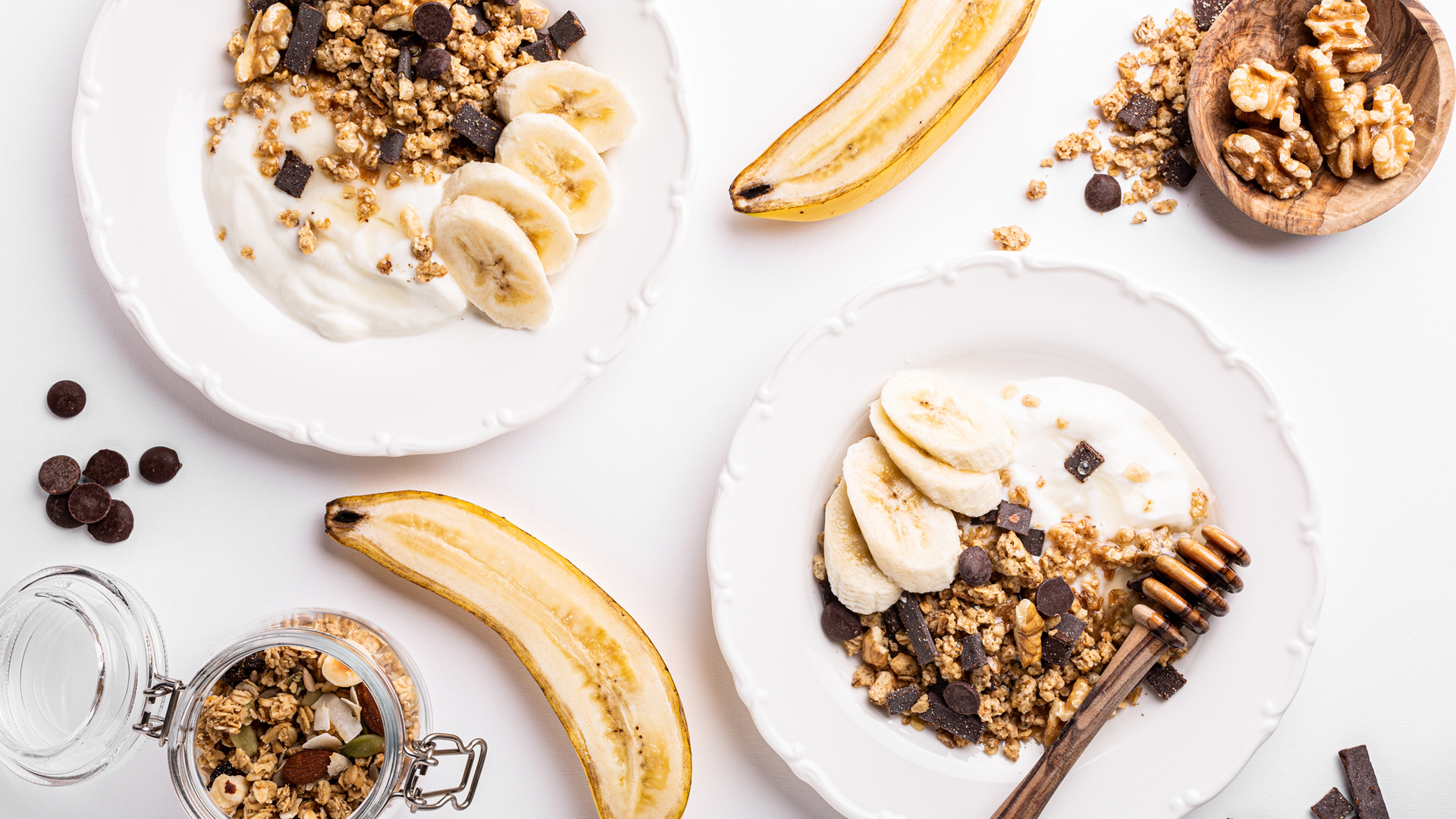What is carb loading?
"Carb loading" is a nutrition strategy often used by athletes to prepare for events lasting several hours.

Carbohydrate loading, commonly known as "carb loading" or "carbo-loading," is a nutrition strategy that’s often used by endurance athletes to improve their performance by increasing the amount of fuel stored in the muscles.
Carbohydrates serve as the body's main source of energy. The carbs we consume are broken down into glucose, a type of sugar, which is used to fuel cell function. When that energy isn't immediately used, the fuel is converted to glycogen and stored in the liver and muscle tissue. During endurance or high-intensity exercise the body uses more of this store than during lower intensity activities.
Carb loading was introduced in the 1960s to help increase athletes' base levels of muscle glycogen prior to endurance events, said David Rogerson, a principal lecturer in sport and exercise science at Sheffield Hallam University in England. "This is so that when we're doing these prolonged activities like a marathon, we've got more fuel,” he told Live Science.
If your body doesn’t have enough glycogen stored up, you can’t sustain performance at a high level because the body has effectively run out of fuel. So while having all the greatest gear — including one of the best running watches on the market — can be a great asset come race day, carb loading is a vital part of preparation.
What is carb loading?
Athletes often load up on carb before a race or event that will last for several hours to ensure they have sufficient stores of glycogen.
"Once we start to run out of fuel, people start to feel fatigued and their performance drops because they are not able to exercise at that higher intensity," Rogerson said. "Carb loading is a strategy to reduce the effect of that and to be able to go into an exercise or a competition with higher base levels of stored muscle glycogen." In practice, this means consuming a high quantity of carbohydrates prior to a race or a long, hard training session.

David Rogerson is a principal lecturer in sport and exercise science at Sheffield Hallam University in England, specializing in sport and exercise nutrition and strength and conditioning. He has worked with sportspeople at all levels, from recreational athletes to elite-level performers competing at the Olympic games.
The strategy of carb-loading to boost performance during endurance events is backed by science.
According to a 2014 review published in the journal Applied Physiology, Nutrition and Metabolism, carb loading improves athletes' performance in endurance events lasting more than two hours, compared with a regular intake.
And while there has been a recent trend toward low-carb, high-fat diets among some athletes, research has shown that carbohydrate-based foods are key for fueling muscles. A study of elite athletes published in 2015 in the journal Sports Medicine concluded that those competing in endurance events performed best after eating a high-carb diet, while eating a diet high in fat did not improve performance and actually impaired rates of muscle glycogenolysis, the process by which glycogen is broken down into glucose to provide immediate energy.

How does carb loading work?
Eating carb-heavy foods like pizza, pasta or potatoes every day the week before a race might sound like a great way to load up on carbohydrates, but it could prove ineffective. According to Rogerson, carb loading should be done in one day to maximize muscle glycogen storage. But this doesn't have to be the day before race day.
"What we know is that the effects of greater storage of muscle glycogen don't disappear after one day," Rogerson said. "They can actually last for up to three to five days. So you could carb load two or three days beforehand and as long as you're not doing lots of exercise on those days, you'll probably still maintain those elevated levels of muscle glycogen going into the competition."
Is carb loading really effective?
Carb loading works up to a point, but the body has a limit on the amount of carbohydrate it can store as muscle glycogen. This means that athletes need to consume additional fuel during long events.
"Even with carbohydrate loading in a marathon or an ultra marathon, there isn't enough energy stored to fuel the exercise," Rogerson said. "We start to deplete it, and that's one of the reasons why people will consume carbohydrates during these kinds of activities."
Too many carbs before a race can also lead to stomach issues and lethargy, so it's best to work with a sports dietitian to work out a suitable intake for you. It’s also important to work out when to carb load before an event to help control these issues.

A pattern of carb loading for a day, resting for a day and then racing is one recommendation to try, said Rogerson. However, he advised a trial and error approach to work out what suits your stomach best.
"I think the benefit of experimenting a little bit is that if you are experiencing some gut problems or finding that you've got a little bit of water retention, just taking the carbohydrate load one or two days back can help those issues go away before you compete, while you still have the benefit of the elevated levels of muscle glycogen," he said.
For activities lasting 90 minutes or less, there is no need for carbohydrate loading because the body already has enough glycogen stored, providing you are consuming a well-balanced diet that includes carbohydrates. A 2012 Sports Medicine review of carb loading and exercise performance found that the nutrition strategy offered no benefit for moderate running or cycling up to 90 minutes.
The same study found that in events lasting more than 90 minutes, having elevated starting muscle glycogen levels postponed fatigue by 20% and improved performance by 3%.
Sign up for the Live Science daily newsletter now
Get the world’s most fascinating discoveries delivered straight to your inbox.
Lily Canter is a freelance money, health and lifestyle journalist with more than 20 years' experience. She writes about fitness for Fit+Well, Tom's Guide, T3, South China Morning Post, Runner's World and Trail Running magazine. She focuses on personal finance for Yahoo! Finance UK, Metro, The Guardian, and loveMONEY. In her spare time she is an ultra-runner, canicrosser and UK Athletics running coach. She also co-hosts the award-winning podcast Freelancing for Journalists.











